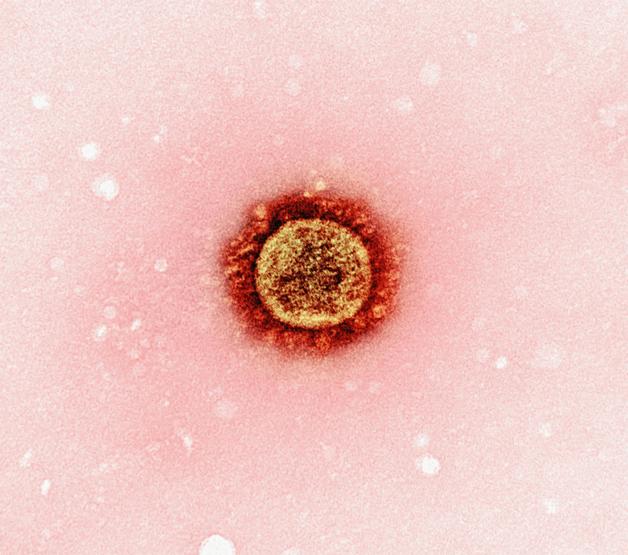When pregnancy becomes the centrepiece of daily life, every meal, every sniffle, even the way you slice fruit—suddenly, these small acts can carry immense significance. Many parents holding their breath at each routine anomaly or discomfort might find a new worry quietly entering: listeriosis pregnancy. It’s an infection that prefers stealth, yet its potential consequences are anything but minor. Some might never feel a thing, others may encounter only faint, flu-like unease—meanwhile, the unborn baby carries the brunt of the risk. Decoding listeriosis pregnancy means addressing ordinary routines—your food, your kitchen, even your peace of mind. So, what really merits your attention? When does a harmless craving become risky, and how can day-to-day choices stack the odds in your favour? Let’s explore the reality behind this invisible intruder, highlight practical prevention, and break down medical insights for every expectant parent. Here’s what matters today—without alarm, but armed with the facts.
Understanding Listeriosis Pregnancy: The Silent, Unpredictable Guest
Listeriosis pregnancy results from infection with the bacterium Listeria monocytogenes—a tiny organism that isn’t discouraged by chilly fridges or spotless-looking kitchen counters. Unlike many bacteria, Listeria is uniquely hard to spot: it can slip into raw and processed foods, multiplying at low temperatures, undetected by taste or smell. It doesn’t transform the look of your favourite cheese or salad, but quietly, methodically, makes its journey. Now, why does pregnancy open the door a little wider to Listeria? Physiologically, an expectant mother’s immune response shifts—cell-mediated immunity, vital for fighting certain microbes, gets turned down just enough to support a developing fetus. This adaptation, protecting new life, inadvertently makes listeriosis pregnancy more likely.
Is Listeriosis Pregnancy Truly a Major Risk?
A quick fact—listeriosis pregnancy is rare, with approximately 12 cases per 100,000 pregnancies, but the calculation is never just about numbers. Parents might shrug at the low odds—until they realise expectant mothers are 13–18 times more likely to acquire this infection than others. Sometimes, all that emerges are faint symptoms: a mild fever, muscle aches, a passing headache. Yet if Listeria tiptoes past the placenta, the fetus enters a danger zone—complications ranging from miscarriage and stillbirth to severe newborn infection or neonatal sepsis. Tragically, mortality rates for infected babies may reach 20–30%, and survivors can face lasting neurological issues. The statistical rarity doesn’t soften this possibility, which is why listeriosis pregnancy commands careful attention.
Where Does Listeria Hide? Food, Environment, and Risk Factors
Listeria is no picky guest. Its favourite haunts are surprisingly ordinary, and some might even feature on your shopping list. Ready for a rundown?
- Unpasteurised milk and dairy products—Soft cheeses like Brie, Camembert, blue-veined cheeses, and even that tempting queso fresco, if not labeled “pasteurised,” all bring risk.
- Unwashed raw fruits and vegetables—Melons, sprouts, lettuce straight from the garden… unless they’re scrubbed, the surface may carry unwanted bacteria.
- Deli meats and hot dogs—Unless these are heated until steaming, Listeria could persist.
- Refrigerated pâtés and smoked seafood—Unless cooked or canned, best set aside while pregnant.
- Cross-contamination in the kitchen—A splash from rinsed chicken or an unwashed knife can transfer bacteria from one food to another.
Environmental Listeria can also stem from soil or water, clinging unseen to roots and rinds. During listeriosis pregnancy, daily routines like gardening or slicing fruit in a shared kitchen become less trivial; simple handwashing and clean utensils help rewrite the script.
Biologically, the story is undeniable: pregnancy-induced immunological changes subtly reduce the body’s first-response defense, granting Listeria an easier path past natural barriers, especially if coupled with dietary habits involving high-risk foods.
Listeriosis Pregnancy Symptoms: What You Might Notice (or Miss)
Wouldn’t it be reassuring if a case of listeriosis pregnancy rolled in with dramatic, unmistakable signals? Instead, its symptoms play a quieter game:
- Mild or persistent fever, sometimes just over 38°C (100.4°F)
- Chills, shivering, or unexplained fatigue
- Muscle aches, headache, or even what feels like simple back pain
- Nausea, vomiting, or diarrhoea
Surprisingly, around 29% of pregnant women might be asymptomatic carriers. Fatigue or vague discomfort can appear so subtle or ordinary—especially amid the myriad sensations of pregnancy—that prompt medical attention is often delayed. Occasionally, more severe events like septicemia or meningitis develop, but these remain rare.
On the baby’s side, if infection occurs in utero, the consequences become stark—miscarriage (especially in early pregnancy), stillbirth, premature labour, neonatal meningitis, or long-term neurological damage. Early-onset neonatal listeriosis usually presents as rapid, severe infection within the first days of life, while late-onset forms—infections appearing weeks after birth—may show up as meningitis.
Risks Over Trimesters
- Early pregnancy: Higher chance of miscarriage or embryonic loss
- Mid-pregnancy: Danger shifts toward preterm delivery or infection of placenta
- Third trimester: Preterm birth, or newborn infection are prominent fears
Diagnosis and Treatment: Medical Safeguards for Listeriosis Pregnancy
If fever, chills, or gastrointestinal symptoms raise suspicion, time becomes an ally. A simple blood culture—a laboratory test checking for infection in the bloodstream—serves as the gold standard for confirmation. Some situations merit additional checks: lumbar puncture (for possible meningitis), or placental analysis if delivery is imminent. It’s worth repeating: even faint or ambiguous discomfort, when persistent, deserves immediate medical consultation.
Treatment pulls no punches. Intravenous ampicillin (or amoxicillin) administered at high dose, sometimes joined by gentamicin, remains the most effective approach. Typically, therapy extends for at least 14 days. For those allergic to penicillin, trimethoprim-sulfamethoxazole (under close professional supervision) steps in, recognising its own fetal considerations. Early, decisive intervention can transform the outlook—most women treated promptly recover with minimal consequences for themselves and their babies.
Hospital admission is common, not only to deliver antibiotics, but also to monitor mother and baby: regular ultrasounds check fetal wellbeing, biological testing keeps tabs on infection progression, and a multi-specialist team guides each step. Analysis of the placenta and maternal lochia (post-birth discharge) can further clarify risks for the newborn.
How to Prevent Listeriosis Pregnancy: Habits Redefined
Wondering how everyday actions—shopping, cooking, snacking—can shield this vulnerable period? Food choices and hygiene take centre stage, with a practical, reassuring focus.
- Skip all unpasteurised and soft cheeses unless clearly labeled pasteurised
- Thoroughly heat deli meats, hot dogs, and ready-to-eat items until steaming
- Avoid uncooked smoked seafood, pâtés, and store-bought delicatessen items unless heated to at least 70°C (158°F)
- Wash all fruits and vegetables vigorously under running water—even your home-grown produce
- Maintain refrigerator temperature at or below 4°C (40°F)
- Cut boards: keep raw and cooked items strictly separate—designate one for meats, another for vegetables
- Wash hands before and after food handling, and consider gloves while gardening
- Take caution with cat litter—it’s not just listeriosis pregnancy but also toxoplasmosis that lurks there
A quick reminder: expiration dates are not arbitrary—if a food sits unloved in the fridge, better to err on the side of caution during listeriosis pregnancy.
Travel introduces new variables: prioritise cooked dishes, prefer bottled water, double-check the cold chain of perishables, and evaluate food hygiene before sampling that tempting street snack.
Staying informed—subscribing to food safety alerts, monitoring recalls, or simply remaining curious about changes in food regulations—can add another layer of daily protection.
Fostering Emotional Resilience During Listeriosis Pregnancy
Pregnancy, while uniquely exhilarating, is peppered with uncertainties. Concerns over contracting listeriosis pregnancy may foster heightened anxiety. Rather than let worry dictate choices, focus on empowerment: create simple, predictable shopping routines around safe foods, involve supportive partners or friends in mealtime prep, and lean into trusted professional guidance. Should questions or doubts arise, medical professionals are accessible allies—midwives, doctors, pharmacists, or reliable health apps are all part of the support framework. And in those rare, especially difficult moments (pregnancy loss or neonatal complications), emotional support and tailored counselling can soften the blow and kindle resilience.
Healthy, confident decision-making stems from knowledge and connectedness, not from perfection. Each step toward food safety, each conversation with a professional, each moment seeking trusted information—these form the foundation of empowered parenting during listeriosis pregnancy.
Key Takeaways
- Listeriosis pregnancy—though infrequent—demands vigilance because of its significant potential risk to the baby.
- Ordinary foods like unpasteurised dairy, deli meats, and unwashed vegetables are principal sources of Listeria, often carrying no visible clues.
- Many mothers experience only faint, flu-like symptoms; persistent fever or unexplained fatigue deserve immediate medical attention.
- Early antibiotic therapy, specifically intravenous ampicillin or amoxicillin, offers the most effective protection for mother and child.
- Preventive habits—food hygiene, safe shopping choices, prompt refrigeration—constitute daily shields against listeriosis pregnancy.
- Emotional wellbeing is as important as physical health, and support is always available, from healthcare providers to trusted resources.
- For more guidance, well-documented advice, and tools tailored to family health, consider downloading the application Heloa for tailored tips and free children’s health questionnaires.
Questions Parents Ask
Can you recover from listeriosis during pregnancy?
Absolutely. With early detection, effective antibiotic treatment—primarily with intravenous ampicillin or amoxicillin—dramatically reduces risks for both mother and baby in listeriosis pregnancy. Prompt care can make all the difference, so at the first sign of unusual symptoms, seeking professional advice is the right step.
Is listeriosis pregnancy more likely in a specific trimester?
Although listeriosis pregnancy can occur at any stage, studies hint at increased frequency during the third trimester, when the immune system softens further in readiness for birth. That’s why steady food safety habits benefit both early and late pregnancy alike.
How long after consuming contaminated food might symptoms appear?
The incubation period for Listeria can puzzle even the experts—symptoms may develop as soon as a few days, or surface up to 70 days after eating affected food. This lag can make it tough to connect the dots. Always be vigilant about any persistent fever, fatigue, or flu-like discomfort, and consult with your healthcare provider for peace of mind.
What foods should be completely avoided to reduce the risk of listeriosis pregnancy?
Foods most closely linked to listeriosis pregnancy include unpasteurised milk and cheese, deli meats and hot dogs (unless properly heated), store-bought pâtés, refrigerated seafood, and any fruits or vegetables that have not been thoroughly washed. Sticking with pasteurised and freshly cooked foods is your best shield.
Are there any home remedies effective for treating listeriosis pregnancy?
Unfortunately, listeriosis pregnancy requires medical intervention. Home-based remedies may help alleviate minor symptoms, but they cannot eradicate the bacteria or protect the fetus. Timely antibiotics, prescribed by a doctor, are necessary.
If I recently ate a recalled food but feel fine, what should I do?
Monitor yourself for any unusual symptoms such as fever, muscle aches, or persistent fatigue—even if mild. If anything seems off, Especially during listeriosis pregnancy, reach out at once to your healthcare provider; early diagnosis and treatment matter.
Does listeriosis pregnancy always cause problems for the baby?
Not always—especially with early detection and effective medical treatment, many pregnancies and babies have positive outcomes. Nonetheless, the infection poses risks, and proactive management offers peace of mind and better chances.
Where can I find more support or updated food safety alerts on listeriosis pregnancy?
For parents seeking additional guidance, health professionals and official agency websites regularly update food safety information and recalls. For personalised, up-to-date advice and family health monitoring, try using the application Heloa for tailored resources, support, and free questionnaires.
Further reading:









